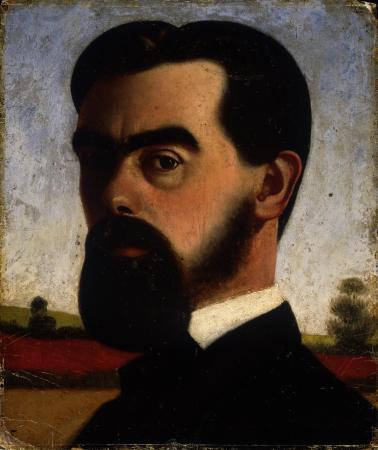“La vie est l’art de tirer des conclusions des prémisses insuffisantes.”
Life is the art of drawing sufficient conclusions from insufficient premises.
en
Samuel Butler était un écrivain britannique principalement connu pour sa satire Erewhon, ou De l’autre côté des montagnes. Wikipedia

“La vie est l’art de tirer des conclusions des prémisses insuffisantes.”
Life is the art of drawing sufficient conclusions from insufficient premises.
en
Life is like music, it must be composed by ear, feeling and instinct, not by rule. Nevertheless one had better know the rules, for they sometimes guide in doubtful cases, though not often
en
“On peut tous faire des grandes choses, si on sait qu’est-ce qu’une grande chose.”
All men can do great things, if they know what great things are.
en
The advantage of doing one’s praising for oneself is that one can lay it on so thick and exactly in the right places.
en
It is far safer to know too little than too much. People will condemn the one, though they will resent being called upon to exert themselves to follow the other.
en
St Anthony tempted the devils quite as much as they tempted him; for his peculiar sanctity was a greater temptation to tempt him than they could stand. Strictly speaking, it was the devils who were the more to be pitied, for they were led up by St Anthony to be tempted and fell, whereas St Anthony did not fall.
en
Life is not so much a riddle to be read as much as a Gordian knot that will get cut sooner or later.
en
Life is a superstition. But superstitions are not without their value. The snail's shell is a superstition, slugs have no shells and thrive just as well. But a snail without a shell would not be a slug unless it had also the slug's indifference to a shell.
en
“C'est facile d'avoir des avis plus justes quand tout le monde les a déjà.”
It's easy to have juster views when everybody else has them.
en
It has, I believe, been often remarked, that a hen is only an egg's way of making another egg.
en
Source: Erewhon (1872), Ch. 10
Writing for a Hundred Years Hence
The Note-Books of Samuel Butler (1912), Part VII - On the Making of Music, Pictures, and Books
“Words are like money; there is nothing so useless, unless when in actual use.”
Thought and Word, viii
The Note-Books of Samuel Butler (1912), Part VII - On the Making of Music, Pictures, and Books
“I am the enfant terrible of literature and science.”
Myself
The Note-Books of Samuel Butler (1912), Part XII - The Enfant Terrible of Literature
Darwin Among the Machines
The Note-Books of Samuel Butler (1912), Part III - The Germs of Erewhon and of Life and Habit
“There is nothing which at once affects a man so much and so little as his own death.”
The Defeat of Death
The Note-Books of Samuel Butler (1912), Part XXIII - Death
Development
The Note-Books of Samuel Butler (1912), Part VII - On the Making of Music, Pictures, and Books
“Youth is like spring, an overpraised season.”
Source: The Way of All Flesh (1903), Ch. 6
Scientists
The Note-Books of Samuel Butler (1912), Part XIV - Higgledy-Piggledy
“A great portrait is always more a portrait of the painter than of the painted.”
Portraits
The Note-Books of Samuel Butler (1912), Part VII - On the Making of Music, Pictures, and Books
Memory, ii
The Note-Books of Samuel Butler (1912), Part IV - Memory and Design
Money
The Note-Books of Samuel Butler (1912), Part XI - Cash and Credit
Sketching from Nature
The Note-Books of Samuel Butler (1912), Part IX - A Painter's Views on Painting
The Art of Propagating Opinion
The Note-Books of Samuel Butler (1912), Part X - The Position of a HomoUnius Libri
Knowledge is Power
The Note-Books of Samuel Butler (1912), Part VII - On the Making of Music, Pictures, and Books
Source: Erewhon (1872), Ch. 22
Honesty
The Note-Books of Samuel Butler (1912), Part VIII - Handel and Music
Source: Erewhon (1872), Ch. 23
Source: Erewhon (1872), Ch. 23
Colour http://books.google.com/books?id=JHguFYrTEQ0C&q=%22It+is+said+of+money+that+it+is+more+easily+made+than+kept+and+this+is+true+of+many+things+such+as+friendship+and+even+life+itself+is+more+easily+got+than+kept%22&pg=PA141#v=onepage
Often paraphrased as "Friendship is like money, easier made than kept."
The Note-Books of Samuel Butler (1912), Part IX - A Painter's Views on Painting
“Life and death are balanced as it were on the edge of a razor.”
The Iliad of Homer, Rendered into English Prose (1898), Book X
My Thoughts
The Note-Books of Samuel Butler (1912), Part XIV - Higgledy-Piggledy
Eating and Proselytising
The Note-Books of Samuel Butler (1912), Part VI - Mind and Matter
The Philosopher
The Note-Books of Samuel Butler (1912), Part XI - Cash and Credit
“To do great work a man must be very idle as well as very industrious.”
Further Extracts from the Note-Books of Samuel Butler http://books.google.com/books?id=zltaAAAAMAAJ&q="To+do+great+work+a+man+must+be+very+idle+as+well+as+very+industrious"&pg=PA262#v=onepage, compiled and edited by A.T. Bartholomew (1934), p. 262
Source: Erewhon (1872), Ch. 12
“To put one’s trust in God is only a longer way of saying that one will chance it.”
Providence and Improvidence, ii
The Note-Books of Samuel Butler (1912), Part XIV - Higgledy-Piggledy
Equilibrium
Source: The Note-Books of Samuel Butler (1912), Part V - Vibrations